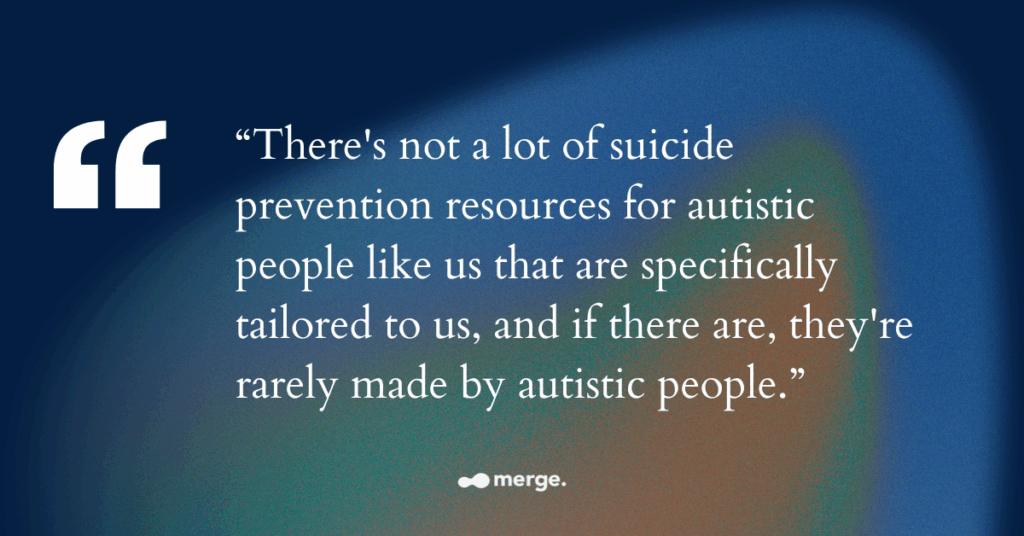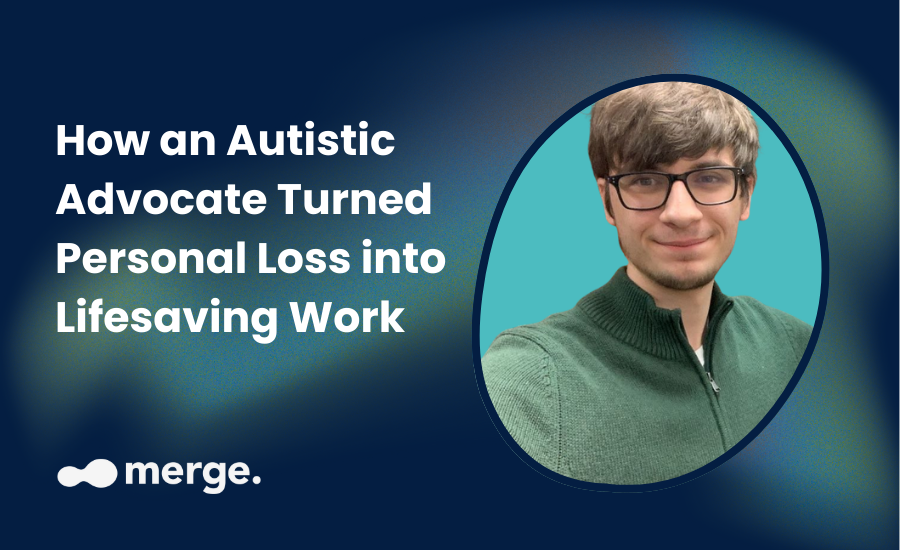Caleb Rader was 13 when his cousin died by suicide. He remembers the funeral vividly—and the decision it sparked in him.
“There was wailing, people were fainting,” he said. “That sort of sparked something in me of ‘I don’t want this kind of thing to happen to other people.’ As I learned more about suicide prevention, I grew more passionate [about] it.”
Rader describes this as one of his special interests as an autistic person. A special interest, sometimes also known as a hyperfixation, is a strong area of focus. Autistic people frequently have a powerful draw to learn about these interests or share information about them with others. Suicide prevention is one of several interests Rader identified, along with the Pokémon series and fairytales.
For Rader, engaging with these interests is essential for his mental health and in some cases has translated to opportunities to improve his own life and bring positive change to the world. In fact, it wouldn’t be an exaggeration to say that Rader’s special interest may have saved his own life.
“I was very depressed for a while in my life, and my special interest actually gave me a reason to keep going when I was in a state of depression,” he said. “It gave me a reason to keep going and moving forward, and that really benefited my mental health.”

Rader’s interest in suicide prevention also helped him find a job in which he is both knowledgable and passionate, working as a subject matter expert on suicide prevention for autistic people at the Department of Behavioral Health.
“There’s not a lot of suicide prevention resources for autistic people like us that are specifically tailored to us, and if there are, they’re rarely made by autistic people,” he said. “Suicide prevention resources, if they’re being tailored towards the autistic community, they need to know about how we perceive the world differently than neurotypical people. And sometimes it even gets in the way. If a clinician is not trained [to work] with autistic people, sometimes they’ll ask very open ended questions or they’ll ask questions that, at least in my experience, don’t truly help.”

Another one of Rader’s interests, mythology and fairytales, may not have directly led to a job, but it has its own benefits. Through folklore, Rader feels he has an amazing window to learn about and connect to people who lived centuries ago. Through mythology, he can learn about people’s thoughts and values at different times throughout history. That connects with his other interests as well, as mythology frequently offers a window into how people of the past thought about disability.
“It’s an explanation of the times, what people were thinking about,” he said. “Here’s what a model citizen looks like.”
Often, Rader feels like special interests can face a degree of stigma, especially if they’re seen as especially childish. That was how he felt with his interest in Pokémon. He noted that the long-running video game series is easy to relate to as an autistic person—after all, there are a lot of creatures to collect and, as Rader noted with a laugh, eye contact is seen as a sign of aggression. But the joy of rediscovering it has been powerful.
“It’s almost healing in a way, when we can interact with it and connect with it again without shame and that absolutely freeing and loving feeling that we have,” he said. “When you say that someone’s interest is shameful or otherwise, you are denying someone that joy.”
For Rader, it’s far too common for people to deny others that joy—but that’s why it’s so important for neurotypical people to learn more about the autistic community.
“I think a lot of that could really change if people actually interacted with the autistic community, instead of just being told what it’s like.”

